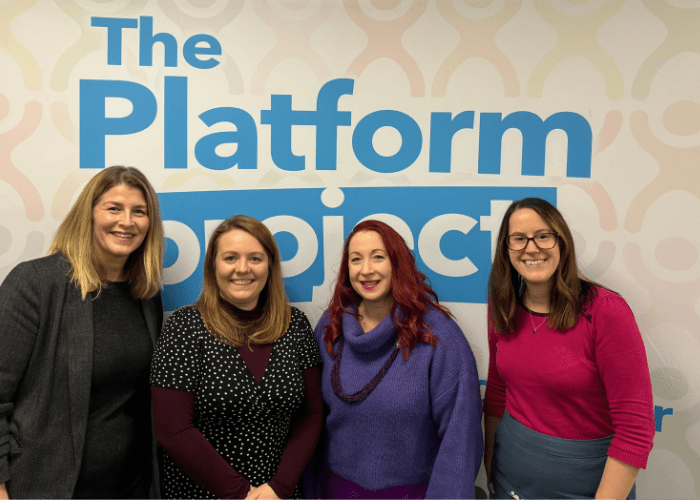Recruitment Trends for 2025: What’s Shaping the Future of Hiring?
Recruitment trends over the past couple years have been dominated by some big topics….

Posted by Niche Recruitment
15th September 2022

On Monday the 6th of June, The UK launched the largest 4 day workweek pilot the world had ever seen. This saw over 70 companies diving into the biggest change in the world of work since hybrid working was ushered into normality. The structure of the work week hasn’t changed in nearly 100 years, is now the time to herald in a new balance?
(For those in the dark) The program is being run by not-for-profit 4 Day Week Global, Autonomy, a think tank, and the 4 Day Work Week UK Campaign in partnership with researchers from Cambridge University, Oxford University and Boston College. The trial is testing out a 100:80:100 working pattern: 100% of the pay for 80% if the time, in exchange for 100% productivity. Participating companies will be able to weigh the pros and cons of a four-day working week, deciding whether to keep the new schedule or switch back at the end of November.
Now that we’re well past the third month of the divisive trial, some of the 3,000 employees have some initial findings to share with the rest of us, giving us a tentative answer to the question: What are the pros and cons of the 4-day work week?
A McKinsey What employees are saying about the future of remote work | McKinsey survey of 5000 global workers last year found that nearly half reported feeling at least somewhat burned out. And that number is expected to under-represent the true percent, as extremely burnt-out employees are unlikely to respond to surveys! This is an alarming stat considering how it transfers to your team productivity. Burn out massively impacts your staff, creating negative interpersonal relationships with other colleagues, decreases work performance, and more likely than not – ushers your employee closer and closer to the great resignation door. The four-day work week has decreased these feelings and has reportedly been life changing for the participants.
In many office environments employees are distracted by a host of things, from meetings that go on too long, to long email chains that could be concise. One participating company has banned all internal meetings longer than five minutes. This keeps all client meetings to 30 minutes and has introduced a “traffic light” system to prevent unnecessary disturbances. Colleagues have a light on their desk and set it to ‘green’ if they are happy to talk, ‘amber’ if they are busy but available to speak, and ‘red’ if they do not want to be interrupted.
One company has seen a reported 14% increase in staff happiness since the trial began, an incredibly important stat when considering how burnout and job dissatisfaction has become a commonly echoed issue throughout the UK workforce. As HR professionals tackle increasing staff mental health issues (35% of UK SMEs reported worsened mental health conditions in June this year), a staff happiness increase in tough times is a massive success.
According to a survey of 10,600 workers by Asana last September. The software company found that the workers in the United States spend about 58% of their day on activities such as answering emails and attending meetings, rather than the work they were hired for. The combination of less burnout, less distractions, and the motivation to get 100% of the work completed in four days has seen a reported boost in productivity.
The extra day has made space for many workers to take up new hobbies, fulfil longstanding ambitions, or simply invest more time in their relationships. This links back to the earlier point of burn-out. Since the pandemic, people’s priorities have had a massive shift. More of us are valuing time at home, with loved ones, and spent on personal development. This shift has recently been coined as “anti-ambition”. However, many argue this as a negative blanket statement of a complex societal response to a dramatic period of change.
A chaotic adjustment left many employees reporting an initial 27% increase in stress. A surprising figure when paired with the celebrated increase in flexibility, productivity, and happiness. Shorter handovers left one company feeling like headless chickens as they began the trial. However, most reported this stress increase to drop as teams became organised and comfortable with new processes. Change, no matter positive or negative, is often a shock to the system.
This trial is dependent on one major factor. A dedication from all staff to commit to the 100% productivity target. In teams with bad communication and low trust, this could be a hiccup in the plan. Only time will tell how achievable this commitment is on a large scale.
Overall, a repeated phrase has echoed across the findings so far. This is that the trial has been: “life changing”. The resulting pros and cons list for the 4 day work week seems heavily unbalanced in the Pros corner favour. The trial still has a few months left to roll out over, giving time for more positives and negatives to raise their heads. We’re intrigued as a recruitment agency how this trial will conclude, especially how it effects the wider world of work. Stay tuned, we’ll be on the case!

Recruitment trends over the past couple years have been dominated by some big topics….

THE COMPANY The Platform Project are a fantastic non-profit organisation based in Swindon. Bridging…

The Autumn Budget 2024 will be delivered by Rachel Reeves on Wednesday 30th October,…

Recruitment trends over the past couple years have been dominated by some big topics….

THE COMPANY The Platform Project are a fantastic non-profit organisation based in Swindon. Bridging…

The Autumn Budget 2024 will be delivered by Rachel Reeves on Wednesday 30th October,…
X Maxiumum upload size 2mb |